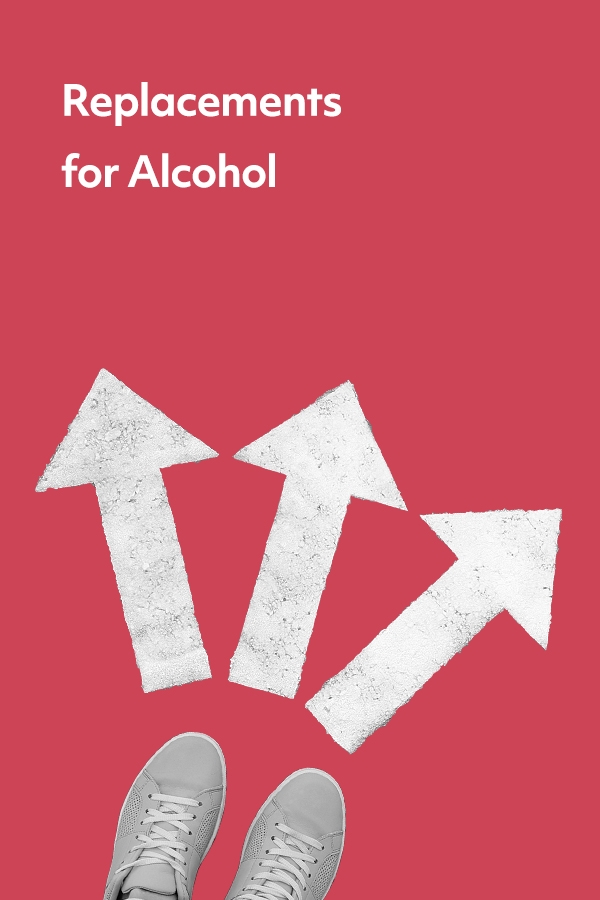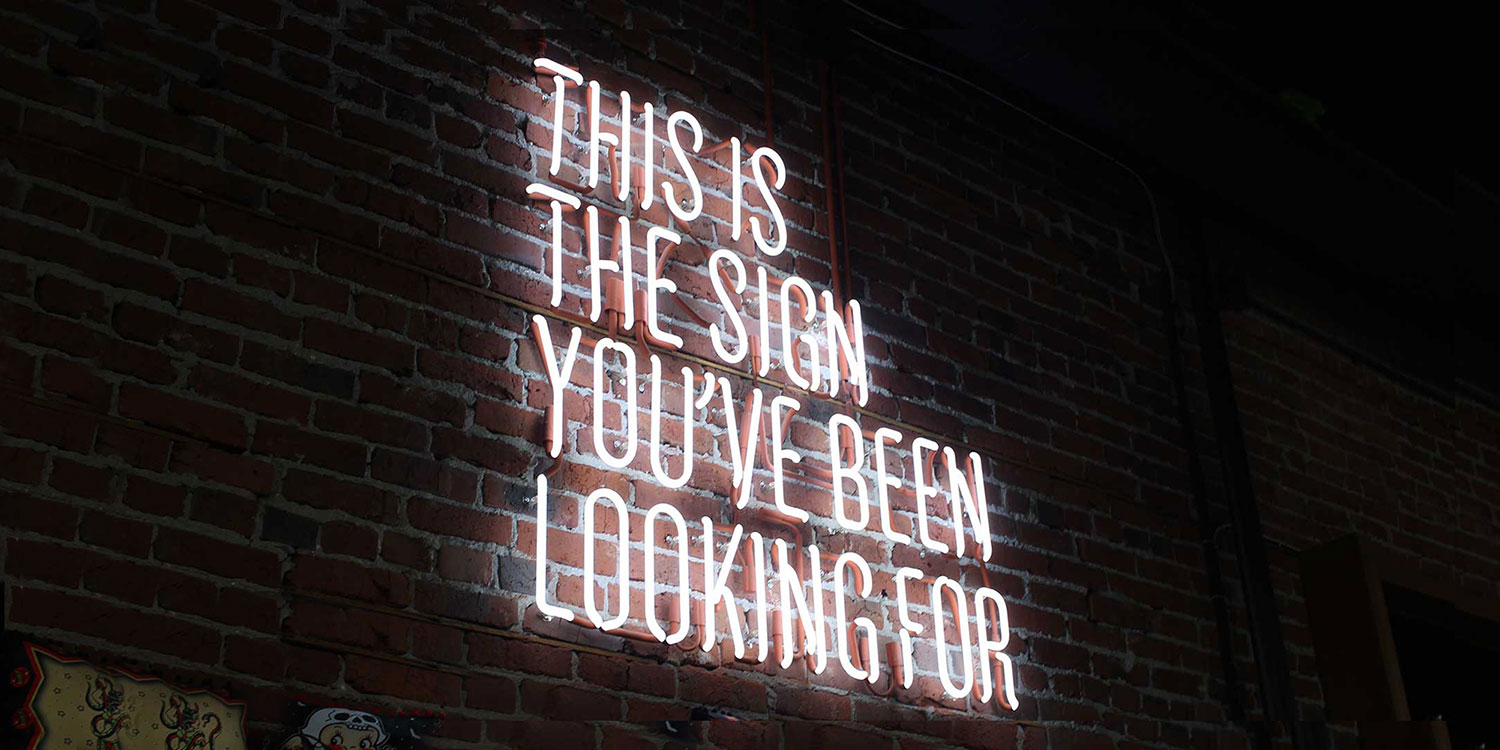So you want to cut down on or quit your drinking. Great! But what do you replace it with?
People drink for a lot of reasons—they like the taste, they enjoy the social aspects of drinking, they want the effects of alcohol on their mind and body, they have an alcohol use disorder, they’re bored … the list goes on and on. So it makes sense that when someone decides they want to try cutting back on their drinking or quitting drinking entirely, they are left with gaps that alcohol used to fill.
Let’s talk about some of the replacements for alcohol, for whatever reason you were drinking it:
Replacements for alcohol as a beverage
A lot of people drink alcohol because they just like it as a beverage or component of a mixed drink. Reducing or eliminating alcohol can feel like a bit of a letdown for these people—they feel like they’re stuck with water or soda as their only choices. But there are so many more options than that! As a bonus to choosing one of these alternatives, having a glass in your hand will usually stop others from offering you an alcoholic beverage.
- Zero proof spirits. There has been a major increase in the variety and availability of zero proof spirits in recent years. There are alcohol-free versions of traditional spirits, like gin, rum, and whiskey. They don’t have the bite or burn of alcohol, but they aim to provide a similar mouthfeel, complexity, and flavor. Many mixologists also like the unique, zero proof botanical spirits that are infused with botanicals like herbs, spices, and mushrooms. Check out the recording of our recent mocktail mixer to see some of these spirits in action. If you’re cutting back on alcohol, you can alternate drinks made from zero proof spirits with alcoholic beverages to keep your alcohol consumption within bounds. Or if you’re cutting out alcohol altogether, you can sip a glass of zero-proof spirits or a mocktail in place of anything with alcohol.
- Non-alcoholic wine and beer. There was a time when non-alcoholic beers and wines had a bad reputation as being flavorless. We’ve come a long way since then! There are a lot more options, and they are more widely available. Both the big, international companies and small, independent breweries and vineyards have entered the non-alcoholic market. There are even non-alcoholic sparkling wines to toast with. If you can’t find any options at your local supermarket, many of these drinks can be ordered online.
- Soft drinks. The reason we call them “soft drinks” is because they don’t have alcohol in them. Don’t worry; sticking with soft drinks doesn’t mean your beverage has to be boring! Adding things like fruit, herbs (like mint or rosemary), or syrups to a glass of soda or seltzer can be surprisingly delicious and festive. Call me old-fashioned, but I love a classic Shirley Temple—ginger ale and grenadine garnished with a cherry!
Replacements for alcohol as a source of relaxation
For some, the appeal of alcohol isn’t the taste but the effect. These people like the impact of alcohol on their brain chemistry, and the way it can make them feel relaxed. In the US, there is a pervasive belief that the way to de-stress after any difficult situation—from little ones like making it through the workweek to big ones like overcoming a significant obstacle—is with an alcoholic beverage. This can be harmful, because alcohol is not the best coping method even for people who don’t have an alcohol use disorder. There are plenty of ways to decompress and cope with stress that won’t give you a hangover.
- Meditation. There’s a reason this is such a commonly recommended method of calming the mind and emotions! It’s because millions of people all over the world have found better emotional balance and peace of mind by meditating. If you’re new to meditation, there are a lot of guided meditations available, or you could try mindful, meditative activity.
- Exercise. Getting active can not only improve your physical wellness, but can also boost the serotonin and endorphins in your brain, and provide an outlet for your emotions. This makes exercise a natural mood-lifter and stress-buster. If exercise brings up negative memories of struggling through gym class, try starting with something low impact like walking, unstructured like freeform dancing, or productive like gardening.
- Self-care. A lot of stress-reducing activities fall under the umbrella of “self-care.” Get a massage. Take a bath. Do some yoga.
- Journal. Writing in a journal can be relaxing in its own right, and also can help you unpick the causes of your stress so you can address them.
- Seek help. Many of us don’t want to admit that our stress and anxiety are a real problem until they start wreaking measurable destruction in our lives, but you don’t have to wait that long! You can seek help from a loved one, therapist, religious advisor, sponsor, or coach.
Replacements for alcohol as a social activity
In some social circles, it seems like every get-together is centered around alcohol. For many of these, it’s no problem to attend as usual and drink something non-alcoholic. This is especially true if you feel comfortable being sober around intoxicated people. But if you will feel singled out or uncomfortable, there are options for spending time with your friends and loved ones without drinking.
- Coffee. There’s a coffee shop on every corner in some cities, and getting coffee is an accepted, alcohol-free hangout. Note that you don’t have to actually get coffee just because you’re in a coffee shop. “Getting coffee” can also include tea or hot chocolate, among other drinks.
- Shopping. From groceries to clothes to hobby supplies, shopping with friends can provide built-in source of conversation. If you don’t have money to spend, window shopping can be a lot of fun, too!
- Museums. Check out your local art, history, and cultural museums. Many of these institutions offer discounted or free admission at certain times and dates.
- Plays or movies. While some theatres offer alcohol, it’s not an intrinsic part of the experience for most people. In most circles, no one will notice someone who bypasses beer to have a soda with their popcorn at a show.
- Something sporty. Bring a bottle of water and enjoy playing volleyball or going on a hike with your buddies or family.
Replacements for alcohol as a pain killer
Many people turn to alcohol to dull their chronic physical pain. This is especially common in many professions that are particularly hard on the body. If you’re one of these folks, cutting back on alcohol can bring with it the nagging discomfort that you were drinking to avoid. But there are many options for managing pain without alcohol.
- Nonsteroidal anti-inflammatory drugs (NSAID). NSAIDs are far more effective than we often give them credit for. This class of medications includes ibuprofen (popular brands include Advil, Motrin, Nuprin), aspirin (popular brands include Bayer, Bufferin), and naproxen (popular brands include Aleve).
- Over-the-counter meds that aren’t NSAIDs. Acetaminophen (popular brands include Tylenol) is not an NSAID, but it can be effective in relieving many kinds of pain. There are also some pain medications that combine multiple active ingredients, (e.g. ibuprofen plus acetaminophen), including brands like Excedrin and Midol.
- Non-medication pain relief. There are a a lot of options for managing pain that don’t involve medications at all. These may include physical therapy, massage, chiropracty, mild electrical current from a TENS unit, counseling, meditation, and ice packs or heating pads.
No matter what you’ve been getting out of alcohol, there are alternatives that can help you cut down or quit. And if you find yourself struggling to stick to that “less alcohol” or “no alcohol” goal, don’t be afraid to reach out for help.










